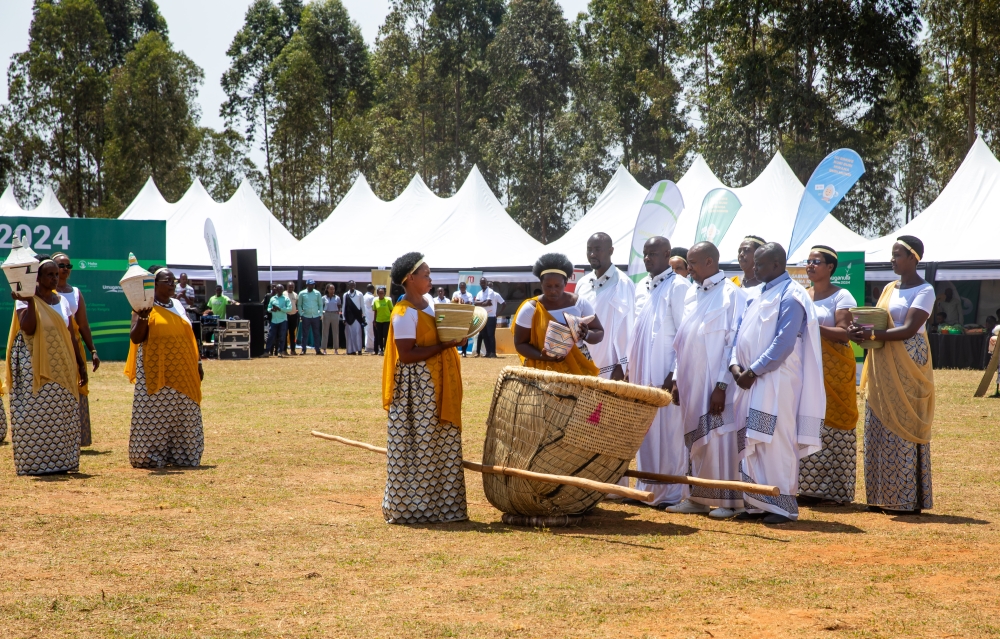I still vividly recall the time when Rwanda and Burundi were admitted to the East African Community (EAC) in July 2007, joining the original members Kenya, Uganda and Tanzania. The EAC instantly became the buzz word in this country.


I still vividly recall the time when Rwanda and Burundi were admitted to the East African Community (EAC) in July 2007, joining the original members Kenya, Uganda and Tanzania. The EAC instantly became the buzz word in this country. A shopkeeper would casually reassure you of how prices were bound for a downward spiral explaining that the EAC meant no more taxes at the border. I remember students who suddenly had newfound courage to speak English and explaining this to be a sign that Rwanda was now part of EAC and hence the adjustment. However, over the years the talk surrounding the EAC seems to have taken on two major directions in the region. There is the nostalgia group and the utopia group. These two seem to be almost mutually exclusive. The first group is known to give off wonderful tales of the past glory days of the EAC. The other day when Ugandan leader Yoweri Museveni and Kenya’s Prime Minister Raila Odinga were officiating at the launch of an education trust fund for the Great Lakes University of Kisumu, an old Kenyan professor spoke about the EAC with so much nostalgia you could feel the joy in his heart from a distance. Indeed, people like the old Kenyan professor are quite many in Uganda, Kenya or Tanzania. These old folks will easily tell you about how they used to travel from Kampala through Nairobi to Dar es Salaam without having to show their passports at the border crossings. They are also quick to remind you of how they never had to exchange currencies at the border crossings thanks to the fact that the three countries were using a single EA shilling. Another pet topic for the older folks is their university education. With a uniform university system, our wazee are never hesitant to remind you of the good old days at Makerere University College as it was called back then. In those days the best brains in any of the three countries made it to Makerere University and later on, depending on the preferred course of study some went to Dar es Salaam University or Nairobi University. The new members of the community do not have the luxury of such memories to fall back in during conversations. For them it is all about the future. This partly explains why Pres. Kagame for instance is considered to be quite progressive minded when it comes to EAC matters. For him it is all about what the EAC can or should be not how wonderful the good old days were. The future of the EAC is often painted as one laden with lots of utopian grandiose plans like railways crisscrossing the region. There has been talk of new railway lines to link Dar es Salaam with Kigali and Bujumbura via Tanzania’s dry ports. Every other day we hear of elaborate plans to modernise and expand the famous Kenya-Uganda Railway which has never seen an improvement since the pre-independence days. Between the nostalgia and utopia, some East Africans have to deal with daily reminders of the harsh reality. The fact that universities in the region do not charge uniform fees even after all the talk of harmonisation. Many a time we are told of plans for one-stop border posts by those who belong to the utopia group. Meanwhile the reality at our border posts remains a harsh one. Despite all the pro-EAC steps taken by Rwanda, I noticed that unlike Kenya, Uganda and Tanzania, the immigration forms issued by Rwandan Immigration do not mention the words East Africa. To make matters worse, I was shocked to read in the press that the Tanzanians had introduced a new and rather prohibitive fee of US $200 for each vehicle ferrying goods from Kenya into Tanzania at the Namanga and Taveta border posts. By the time of writing this, the Tanzanian Minister for East African Cooperation Hon. Samuel Sitta had ‘clarified’ that the fee was not sanctioned by government, saying it was a unilateral and unauthorised decision by border authorities. Clarified is in quotes because I am sure that I am not the only one who buys the minister’s explanation especially if you consider the fact that he did not promise an immediate withdrawal of the fee. Either way you look at it, the EAC is still simply a work in progress with the nostalgic and utopian talk all a far cry from the harsh realities of today.




